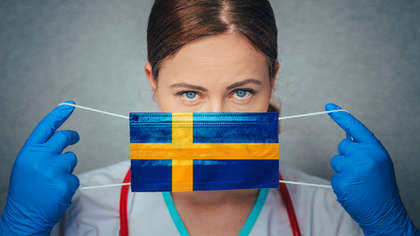
The Scandinavian nation, which has taken a unique approach throughout much of the pandemic, has ended wide-scale testing and lifted restrictions.
Sweden will disband its test centres, with even those displaying symptoms no longer required to get tested for the virus.
"We have reached a point where the cost and relevance of the testing are no longer justifiable," said Swedish Public Health Agency chief Karin Tegmark Wisell. "If we were to have extensive testing adapted to everyone who has Covid-19, that would mean half a billion kronor a week (€48 million) and two billion a month (€192 million)."
Under the new rules, only healthcare workers and members of vulnerable groups will be entitled to free PCR testing.
Experts believe Sweden's lead could be soon followed by other European countries as the costs of testing struggle to keep up with the easily transmissible but less deadly Omicron variant.
"Sweden is leading the way, and other nations will inevitably follow," said University of Exeter's Dr Bharat Pankhania. "We don’t need extensive testing for the sake of testing, but we must look nevertheless in sensitive settings such as hospitals, nursing homes and other sensitive places where there are very vulnerable people."
With the Omicron variant placing no significant burden on Sweden's hospitals, its remaining pandemic restrictions have been lifted.
Throughout most of the pandemic, Sweden took an individual responsibility approach, which resulted in a higher death rate than its Nordic neighbours but lower than several European countries that implemented strict lockdowns.


 Brand New Night Club To Open In Dublin This Weekend
Brand New Night Club To Open In Dublin This Weekend